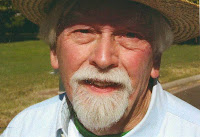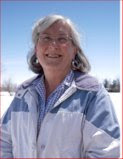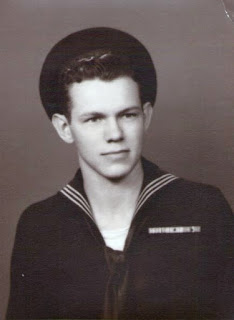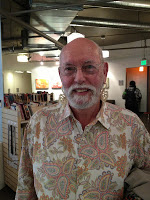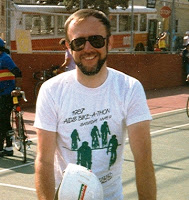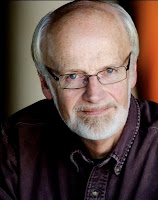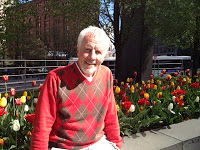We moved up to Clay Center, Kansas, on my fifteenth birthday, two counties away from my hometown Junction City. I was born in that Army town with population of around 20,000, adjoining Fort Riley, an Army post with a similar population, that sat next to another small city, Manhattan, with 20,000 population, home of a state university with about the same number of students. Although we weren’t leaving a metropolitan center, compared with the county seat town where we were headed, with its 5,000 population and one stop light, I felt like I was giving up civilization and moving to the center of nowhere.
At least we were moving into an interesting house. We’d looked at several, each with strong points that appealed to me. Finally Dad and Mom purchased a roomy place with four bedrooms and a bath upstairs; parlor, family, dining, and utility rooms, entry hall with an exposed staircase that my sisters fantasized walking down in formals or wedding gowns, plus a kitchen on the main level; rough partial basement below and unfinished attic above; and an unattached garage, all sitting on three lots on the corner of Crawford and US 24, just one block east of Highway 15. It was a beautiful old place, built sixty years before for a local banker and his family. As the only boy, I got my own room but also a power mower so I could tend the huge yard. Around the same time as our move I dropped my long-standing subscription to The American Indian Hobbyist and began reading House Beautiful.
Decorating became my theme. Mom was into the house project ordering drapes for the front rooms, buying an extra couch and slipper chairs for the parlor, shopping for a proper dining room set, bringing home fabrics, pillows, and endless ideas for making this house our home. I, too, started thinking about furniture, fabric, and fancy dishes. So immediately after the move, my next older sister Holly and I began haunting Mrs. Stedman’s antique store. We read House Beautiful and discussed our likes and dislikes. Then we shopped to see what we could find to realize our ideas. For months we saved our change and bought a Victorian marble-top coffee table as a gift for Mom. At the end of that first year my sister went off to college in another town. I still pored over the magazine to find ideas for my room.
One day I noticed an ad for an art print company in New York City and sent off a letter requesting their catalogue. In a couple of weeks I received the illustrated listing and found myself entranced by a print of a painting depicting the torso of a young man wearing no shirt and the top button of his Levi’s open. I wanted that print but couldn’t imagine how anyone would hang such a picture in their house or room. But there it was in a nationally-advertised magazine in full color like an invitation into another world.
I ordered several prints although not the one I most wanted. In figuring out what to do with them, I realized I needed frames and returned to the antique store we now called the junk shop. For years I had hung prints on my bedroom walls with straight pins. Now I needed to frame them, a need that has persisted throughout my adult life. I enjoyed my years in that beautiful old house with its fancy woodwork, neat window treatments, and the pictures I’d framed.
A couple of years later I was moving into a college dorm and then three years after that was living in an apartment with my wife. Over the decades of our marriage we lived in several houses and apartments. Together we decorated creating a blend of our tastes. Often she’d move the furniture; I’d hang the pictures selected from an ever growing collection of framed paintings and prints that represented a diversity of style and content. Still there was no torso on display except in the bathroom mirror.
Years later, after our separation, I started spending nights with my lover Rafael. He’d invited me to his house after a flirtation of several months. There we made love to one another. I was content to spend night after night in this boyish man’s apartment; he was intent on making a marriage of sorts out of our connection. Finally he said I should bring my clothes. “This will be our home, your apartment your office,” he said. Although I was quite taken with him and our relationship, I clearly saw that his apartment lacked style and ornament. It consisted of a large open room with a kitchen along one wall, a bedroom, and a bathroom. Rafael owned two couches, a floor lamp, a small table with two chairs for meals, a big TV that sometimes worked sitting on a large sewing table, a double bed mattress and springs, a single mattress leaning against the wall, a small chest of drawers, his clothes and several boxes of whatnots. From my point of view the apartment’s best feature was a small air conditioning unit in the bedroom wall.
Together we sought to make this California-style apartment house unit our home. As we moved the furniture, I recalled my House Beautiful interest, the transformation of that old house in my teen years, my cooperative decorating experiences with my wife, and my continuing fascination with furniture and much more. Rafael and I found a bed frame and a lamp in the alley. From my office, I brought over my great grandmother’s wardrobe for the bedroom, a chair for the living area, and a portable sewing machine for Rafael to use. Then one day when Rafael was at work I brought framed paintings and prints to decorate the walls of this cold apartment. The transformation was immediate. The place finally looked lived in and warm. As I hung a collage of a pair of cowboy saints and other gay-themed art, I recalled the print that had so attracted my high school self but realized that this house didn’t need such a picture, for here I lived with a sexually inviting man who thrilled me in ways much more complex and satisfying than that intriguing image of years ago.
The apartment finally complemented the warmth of our love. There we fixed Mexican, French, Italian, Spanish, Asian, and American dishes for one another. We entertained each other with stories of our lives. We cleaned, shopped, kissed, and kidded. We lived in that house beautiful a couple’s life of delight.
About the Author
Phillip Hoyle lives in Denver and spends his time writing, painting, giving massages, and socializing. His massage practice funds his other activities that keep him busy with groups of writers and artists, and folk with pains. Following thirty-two years in church work, he now focuses on creating beauty and ministering to the clients in his practice. He volunteers at The Center leading “Telling Your Story.”

